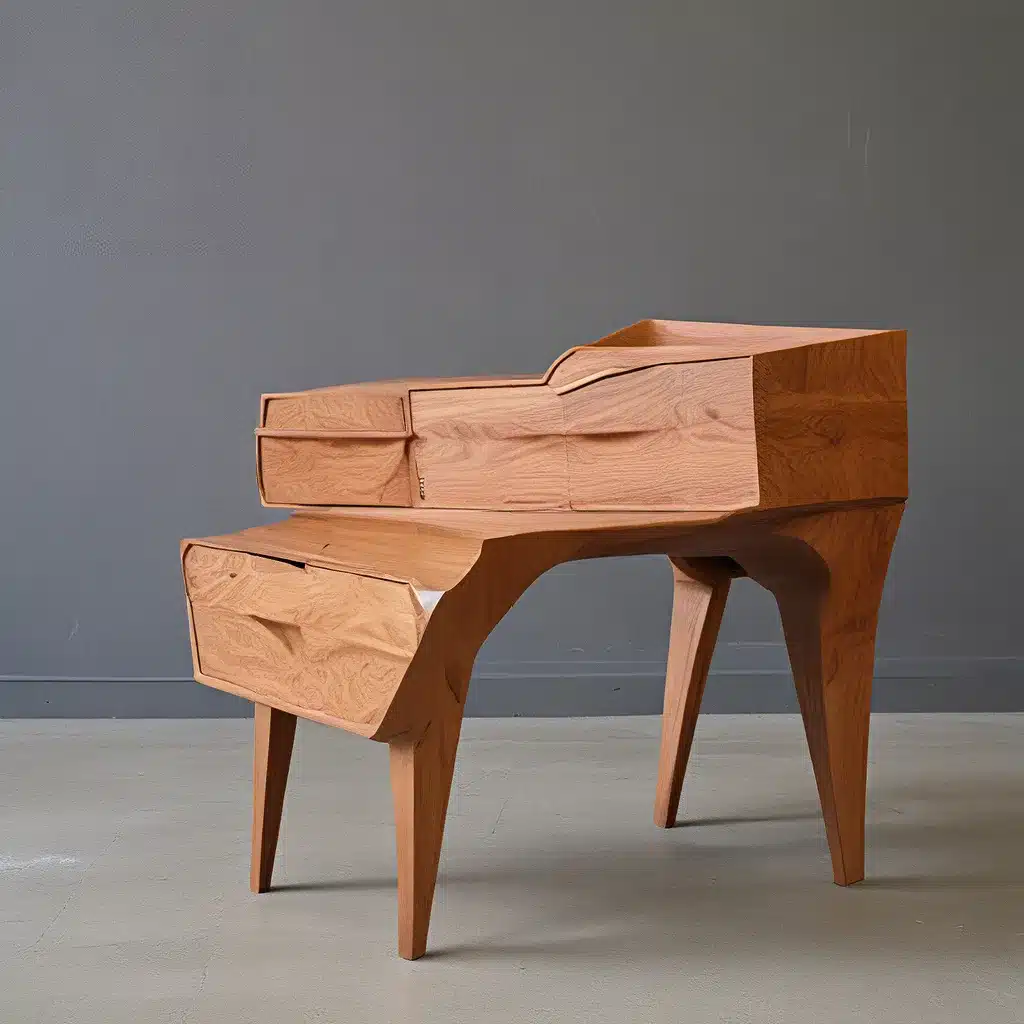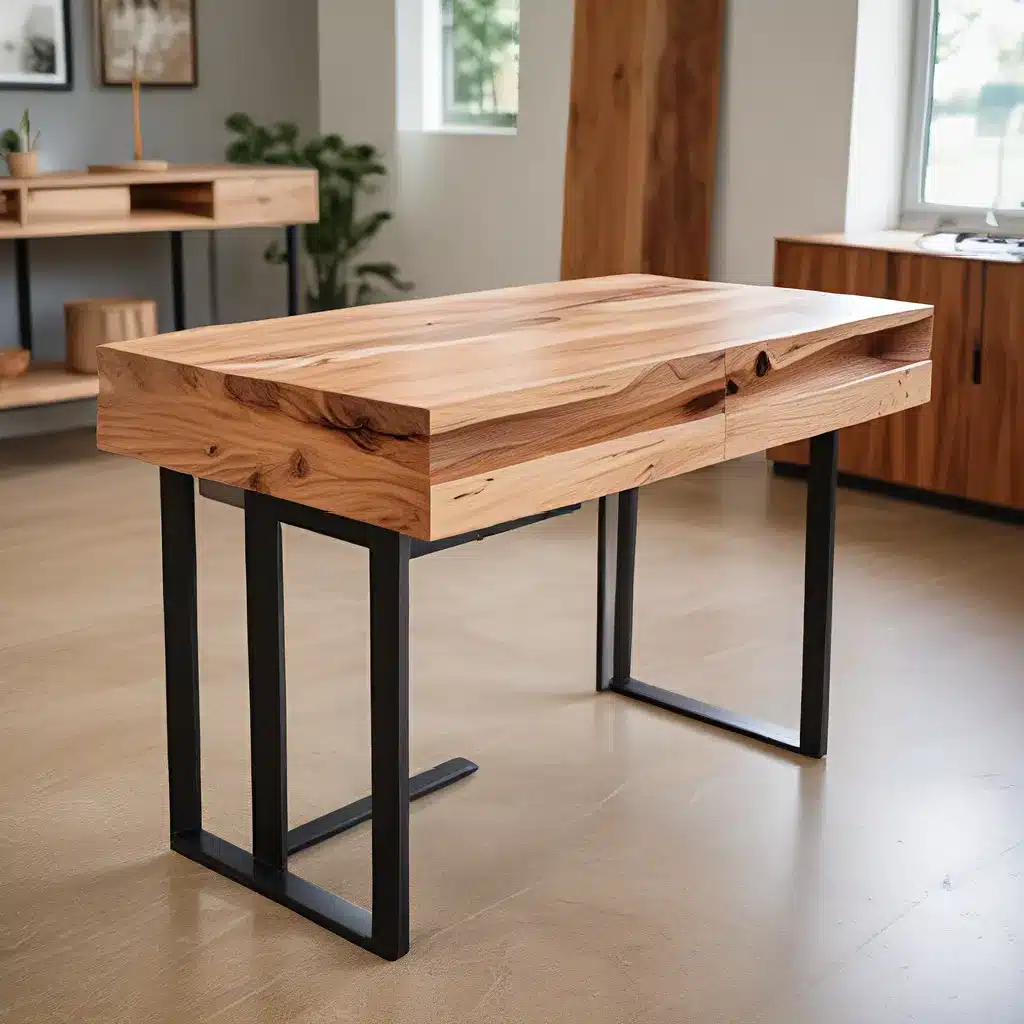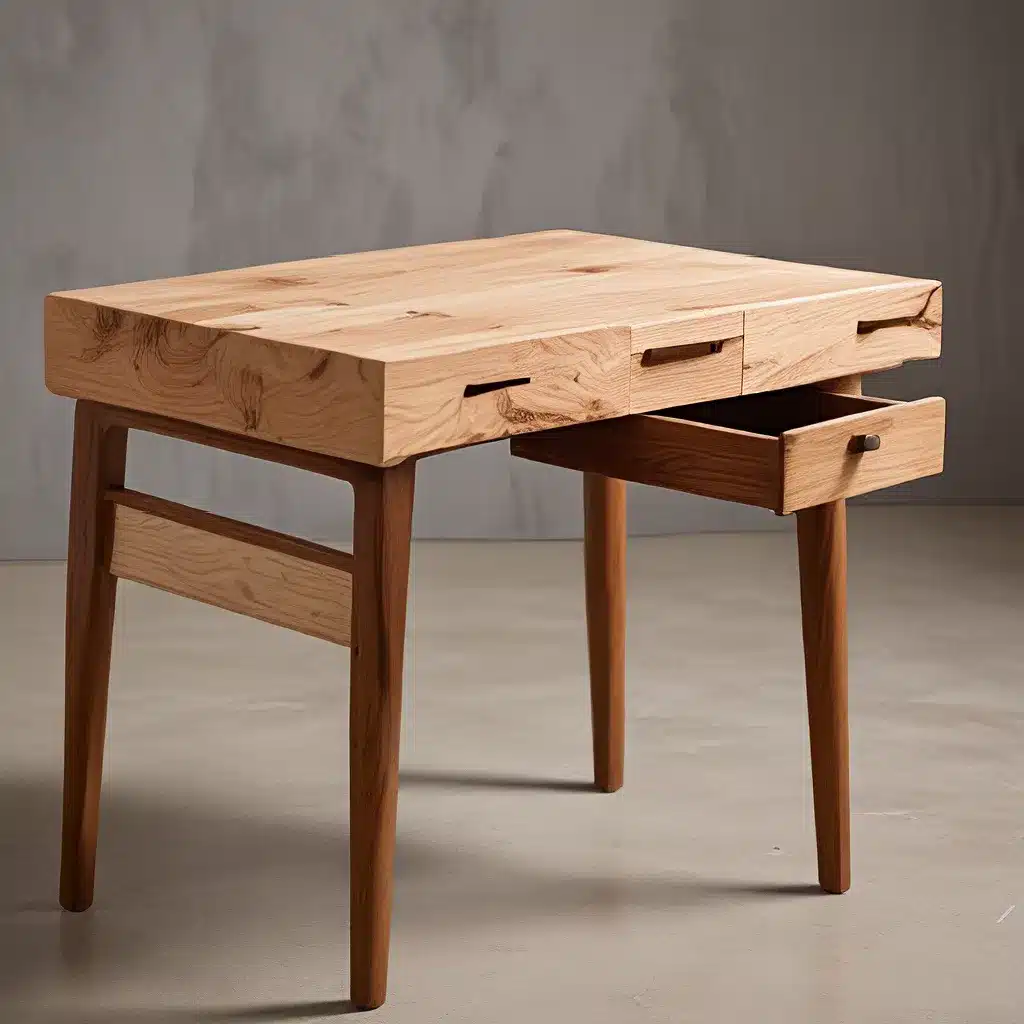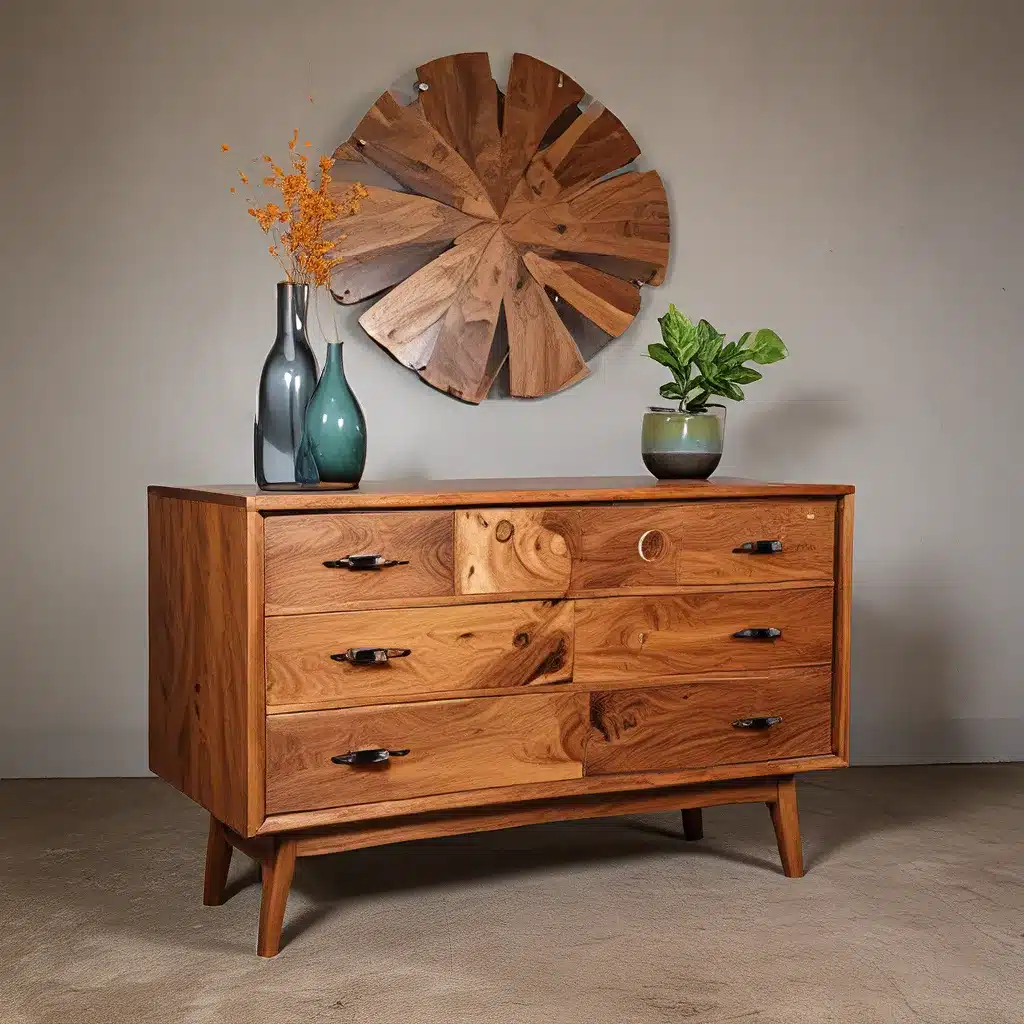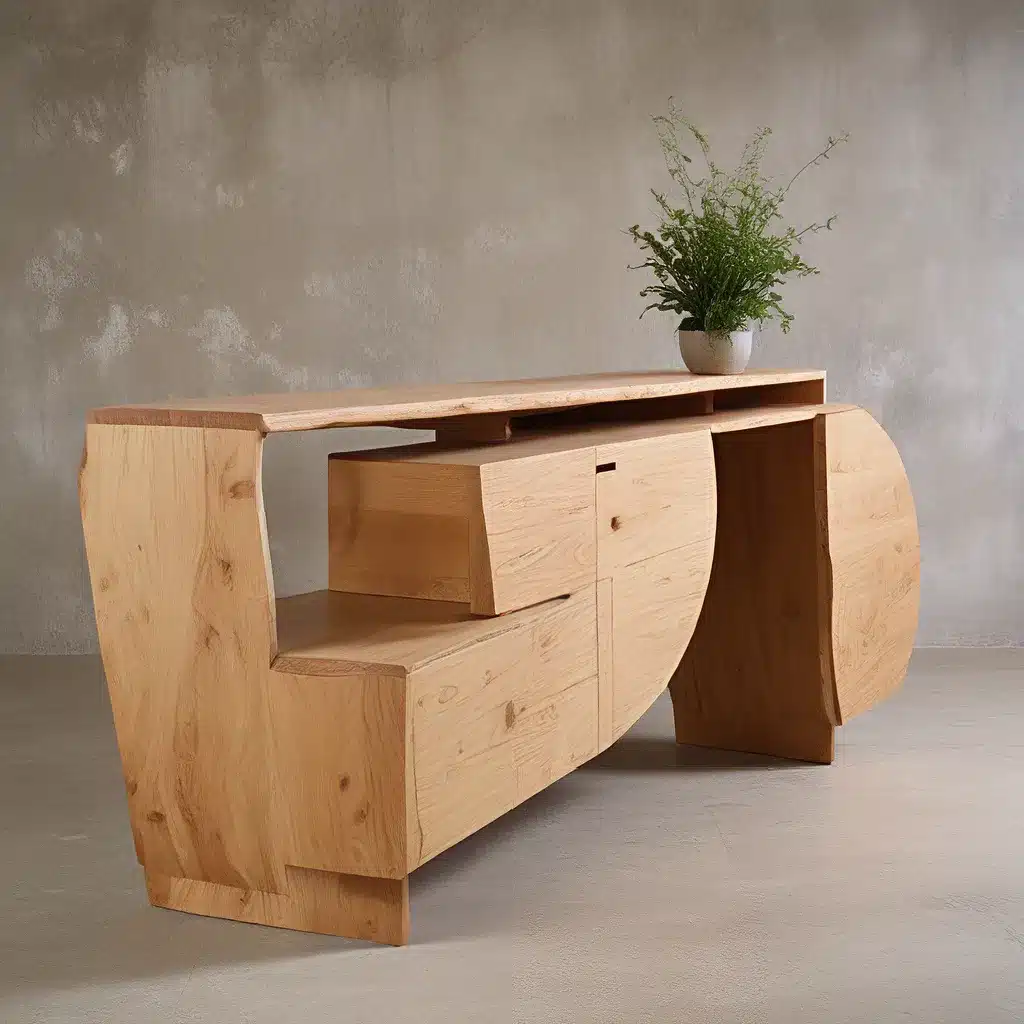
As an unabashed lover of all things furniture, I’ve always been fascinated by the intricate craftsmanship and unique character of bespoke pieces. But in recent years, my admiration for this artform has taken on a whole new dimension – the growing emphasis on sustainability.
You see, I’ve come to realize that bespoke furniture isn’t just about aesthetics and exclusivity… it’s about so much more. These custom-made marvels are at the forefront of a movement that’s redefining the way we think about our environmental impact. And trust me, once you dive into this world, it’s hard not to get swept up in the excitement.
The Rise of the Eco-Conscious Consumer
Let’s start by taking a step back. Over the past decade, we’ve witnessed a seismic shift in consumer behavior. People are becoming increasingly aware of the environmental toll of their purchasing decisions, and they’re actively seeking out sustainable alternatives.
In fact, a recent IBM study found that a staggering 93% of global respondents said the pandemic had influenced their views on sustainability. And it’s not just a passing trend – environmental issues have only grown in importance, with consumers demanding more accountability and transparency from the brands they support.
This rising tide of eco-consciousness has forced businesses to rethink their strategies, and the furniture industry is no exception. Brands that are able to demonstrate their commitment to sustainability are finding themselves in high demand, as savvy consumers vote with their wallets for products that align with their values.
Bespoke Furniture’s Sustainable Advantage
So, where does bespoke furniture fit into all of this? Well, my friends, I’m about to let you in on a little secret: this artisanal approach to furniture-making is inherently more sustainable than mass-produced options.
Trig Modern, a leading bespoke furniture brand, has been at the forefront of this movement. They understand that by creating custom-made pieces, they’re able to minimize waste and maximize the use of high-quality, ethically sourced materials.
“Each piece we create is a labor of love,” explains the Trig Modern team. “We work closely with our customers to understand their needs and preferences, and then we craft a one-of-a-kind piece that’s designed to last for generations. This approach not only results in a superior product, but it also reduces the environmental impact associated with mass production.”
And it’s not just Trig Modern – this commitment to sustainability is a hallmark of the bespoke furniture industry as a whole. By eschewing the fast-paced, high-volume production methods of mass-market furniture, these artisans are able to thoughtfully consider every aspect of the manufacturing process, from material sourcing to energy consumption.
Embracing a Circular Economy
But the eco-friendly benefits of bespoke furniture don’t stop there. These custom-made pieces are also designed with longevity in mind, which is a crucial component of a circular economy.
As the world becomes more environmentally conscious, the concept of a circular economy – where products are designed to be reused, repaired, or recycled – has gained traction. And bespoke furniture is perfectly positioned to thrive in this new paradigm.
“When you invest in a custom-made piece, you’re not just buying a piece of furniture – you’re acquiring a work of art that’s built to withstand the test of time,” says the team at Eco Bespoke Furniture. “Our clients know that their purchase will last for decades, reducing the need for frequent replacements and minimizing their environmental footprint.”
Moreover, bespoke furniture makers often incorporate design features that facilitate easy disassembly and repurposing. This not only extends the life of the product but also ensures that materials can be reclaimed and reused, further contributing to a circular economy.
The Human Touch: Elevated Customer Experience
But the sustainable benefits of bespoke furniture go beyond just environmental considerations. These custom-made marvels also offer a level of personalization and customer experience that simply can’t be matched by mass-produced alternatives.
“When you work with a bespoke furniture maker, you’re not just a customer – you’re a collaborator,” explains Jack, a seasoned furniture enthusiast. “They take the time to understand your unique needs and preferences, and then they work tirelessly to bring your vision to life. It’s a truly immersive experience that leaves you feeling valued and connected to the final product.”
This human-centric approach to design and manufacturing is a key differentiator for the bespoke furniture industry. In an age where automation and impersonal interactions have become the norm, these artisans are offering a refreshing antidote – a chance to be part of the creative process and to have a tangible impact on the final outcome.
Bridging the Gap: Bespoke Furniture and the Modern Consumer
Now, I know what you might be thinking: “Okay, this all sounds great, but isn’t bespoke furniture just for the ultra-wealthy?” Well, my friends, that’s where you’d be mistaken.
While it’s true that bespoke furniture has traditionally been associated with exclusivity and high-end clientele, the industry is rapidly evolving to cater to the needs of the modern consumer. Thanks to advancements in technology and manufacturing processes, bespoke furniture is becoming more accessible and affordable than ever before.
“We’re seeing a growing demand for custom-made pieces from a wide range of consumers,” says Jeff, a sales manager at a leading bespoke furniture retailer. “People are realizing that they don’t have to settle for mass-produced furniture that doesn’t quite fit their space or style. With bespoke, they can get exactly what they want at a price point that works for their budget.”
And this shift in accessibility is crucial for the continued growth and adoption of sustainable furniture practices. As more people discover the benefits of bespoke, the demand for eco-friendly, custom-made pieces will only continue to rise, driving innovation and pushing the industry forward.
The Future of Bespoke Furniture: A Sustainable Utopia?
So, what does the future hold for the bespoke furniture industry? If the current trends are any indication, it’s a bright and sustainable one.
As Eco Bespoke Furniture puts it, “We’re on the cusp of a furniture revolution – one that prioritizes craftsmanship, sustainability, and the needs of the modern consumer. And bespoke furniture is leading the charge.”
With the growing demand for eco-conscious products, bespoke furniture makers are poised to thrive. By continuing to innovate, push the boundaries of design, and champion sustainable practices, these artisans will not only satisfy the needs of environmentally aware consumers but also inspire others to follow in their footsteps.
Who knows, perhaps one day we’ll live in a world where bespoke furniture is the norm, and mass-produced, unsustainable options are relegated to the dustbin of history. A furniture-lover can dream, can’t they?
So, if you’re in the market for a new piece and you’re looking to make a positive impact on the planet, I encourage you to explore the world of bespoke furniture. It just might be the key to unlocking a more sustainable and personalized future for your home. And who knows, you might even find yourself falling in love with the process – just like I did.




